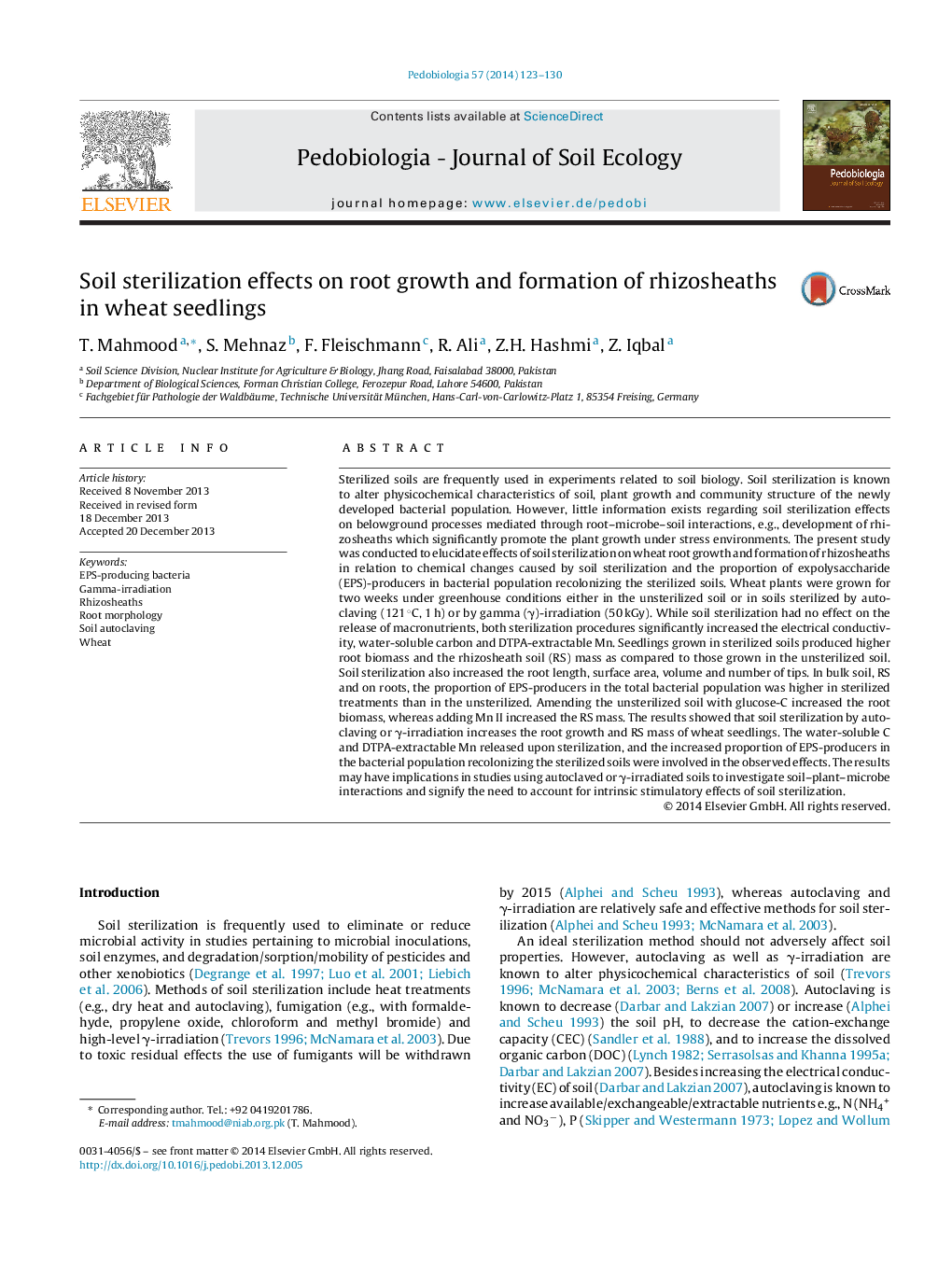| کد مقاله | کد نشریه | سال انتشار | مقاله انگلیسی | نسخه تمام متن |
|---|---|---|---|---|
| 2061056 | 1076431 | 2014 | 8 صفحه PDF | دانلود رایگان |
Sterilized soils are frequently used in experiments related to soil biology. Soil sterilization is known to alter physicochemical characteristics of soil, plant growth and community structure of the newly developed bacterial population. However, little information exists regarding soil sterilization effects on belowground processes mediated through root–microbe–soil interactions, e.g., development of rhizosheaths which significantly promote the plant growth under stress environments. The present study was conducted to elucidate effects of soil sterilization on wheat root growth and formation of rhizosheaths in relation to chemical changes caused by soil sterilization and the proportion of expolysaccharide (EPS)-producers in bacterial population recolonizing the sterilized soils. Wheat plants were grown for two weeks under greenhouse conditions either in the unsterilized soil or in soils sterilized by autoclaving (121 °C, 1 h) or by gamma (γ)-irradiation (50 kGy). While soil sterilization had no effect on the release of macronutrients, both sterilization procedures significantly increased the electrical conductivity, water-soluble carbon and DTPA-extractable Mn. Seedlings grown in sterilized soils produced higher root biomass and the rhizosheath soil (RS) mass as compared to those grown in the unsterilized soil. Soil sterilization also increased the root length, surface area, volume and number of tips. In bulk soil, RS and on roots, the proportion of EPS-producers in the total bacterial population was higher in sterilized treatments than in the unsterilized. Amending the unsterilized soil with glucose-C increased the root biomass, whereas adding Mn II increased the RS mass. The results showed that soil sterilization by autoclaving or γ-irradiation increases the root growth and RS mass of wheat seedlings. The water-soluble C and DTPA-extractable Mn released upon sterilization, and the increased proportion of EPS-producers in the bacterial population recolonizing the sterilized soils were involved in the observed effects. The results may have implications in studies using autoclaved or γ-irradiated soils to investigate soil–plant–microbe interactions and signify the need to account for intrinsic stimulatory effects of soil sterilization.
Journal: Pedobiologia - Volume 57, Issue 3, May 2014, Pages 123–130
